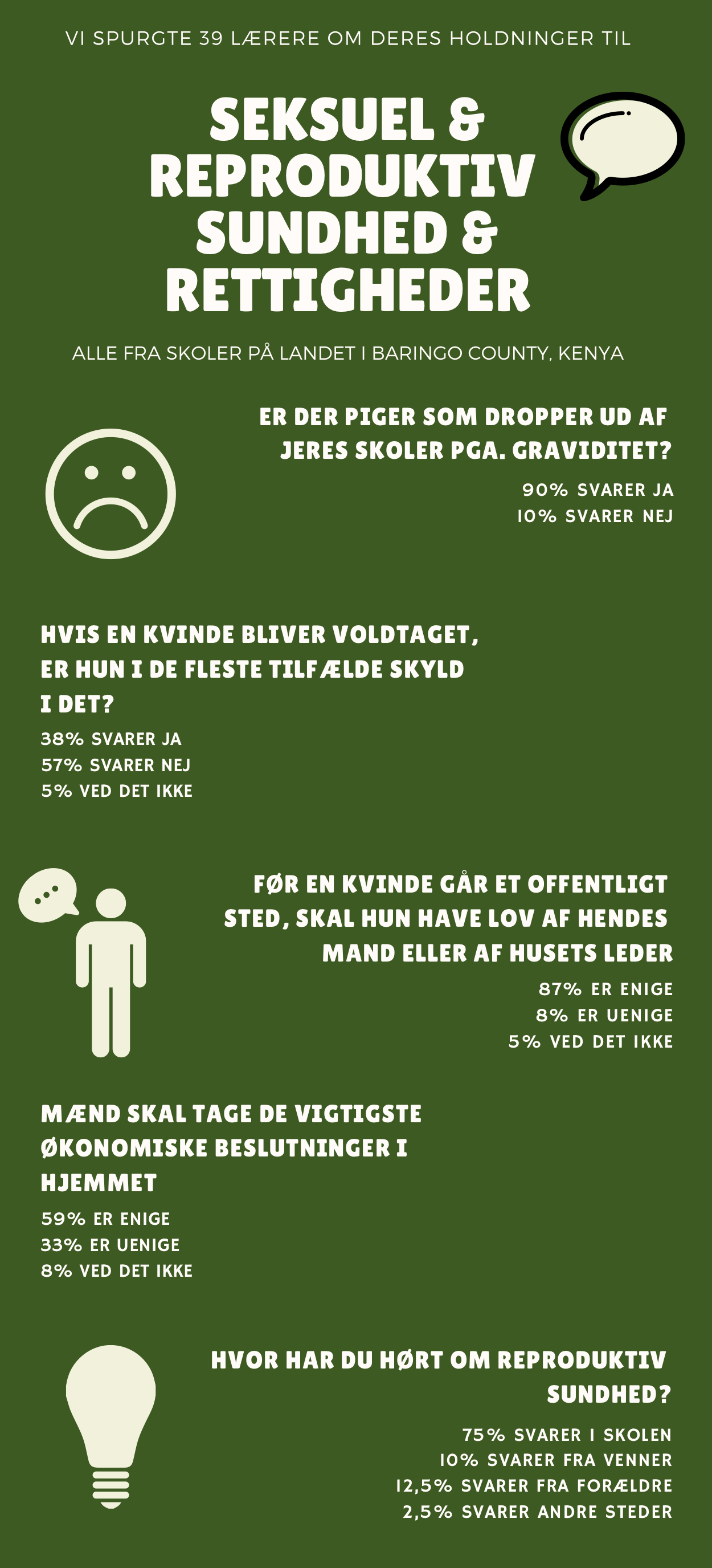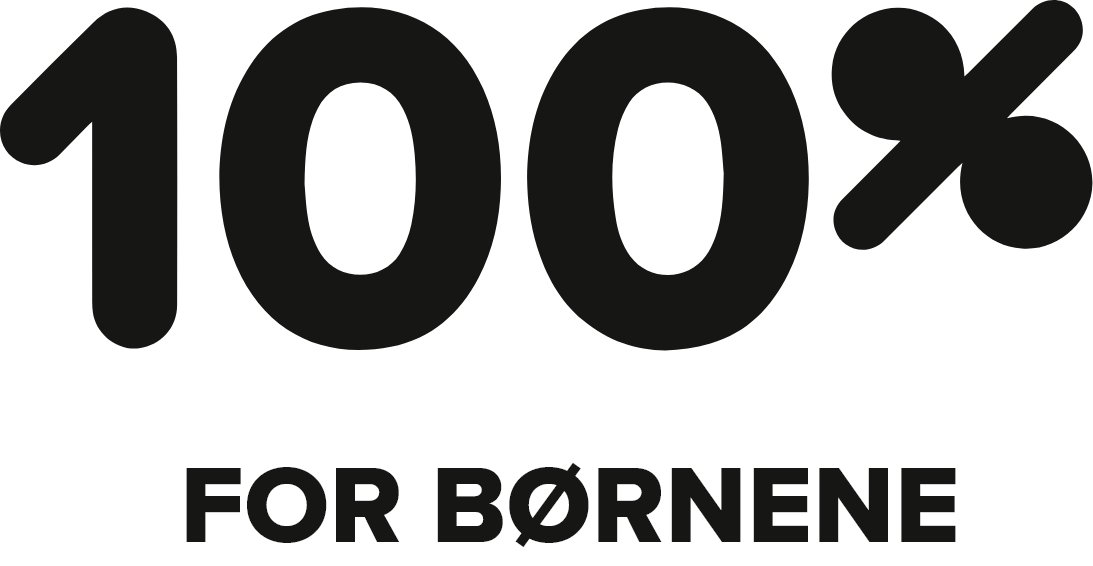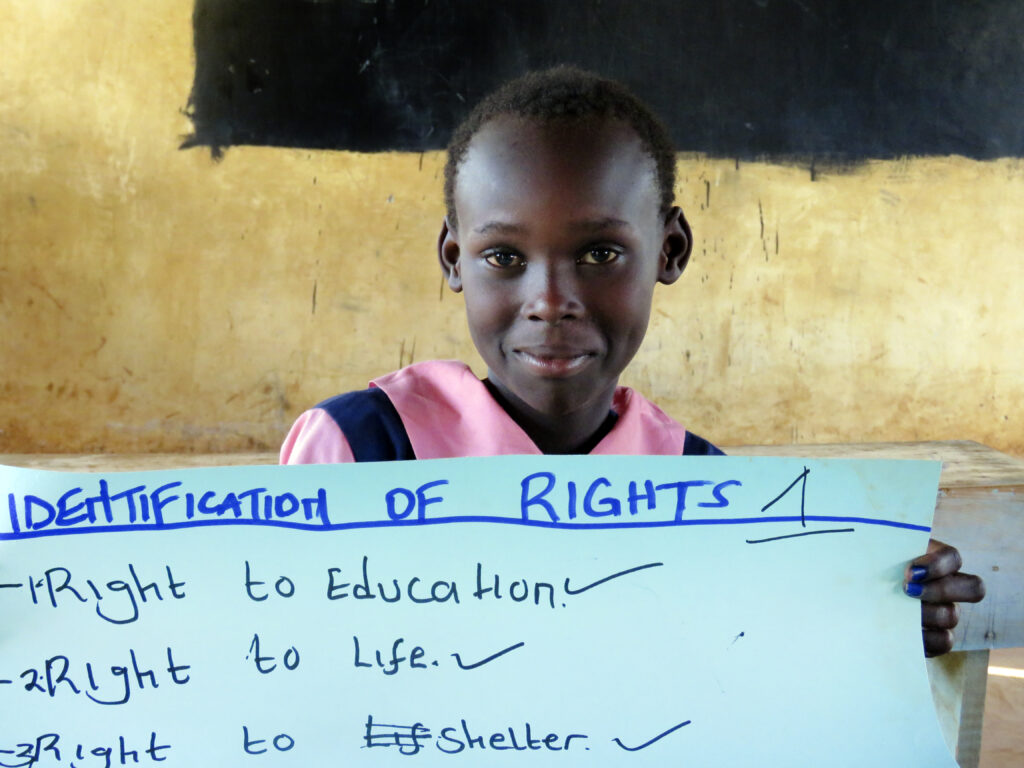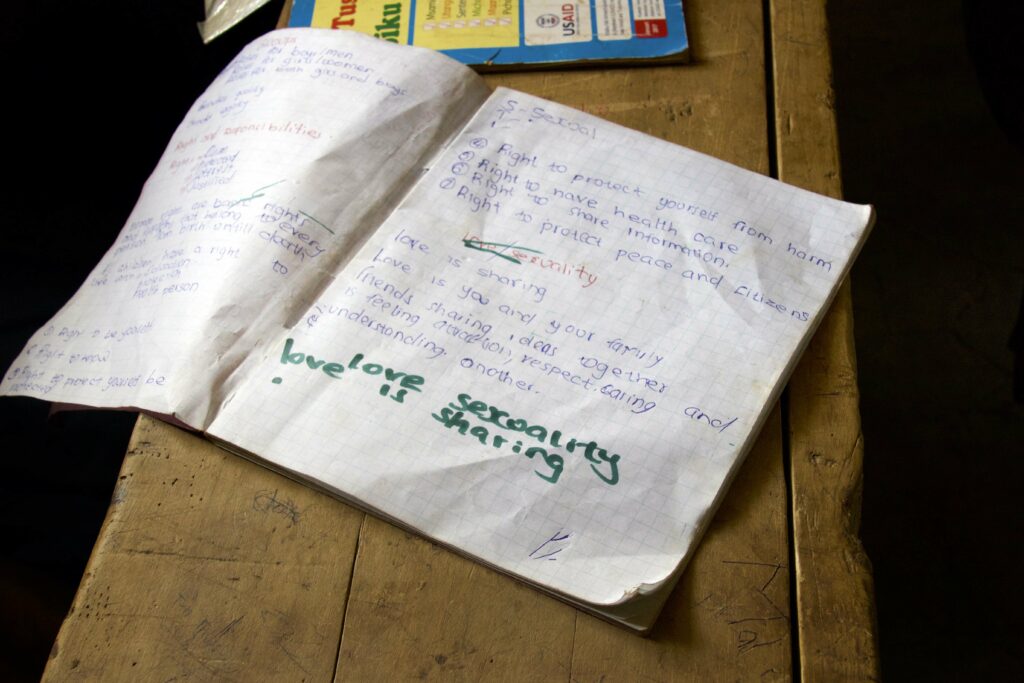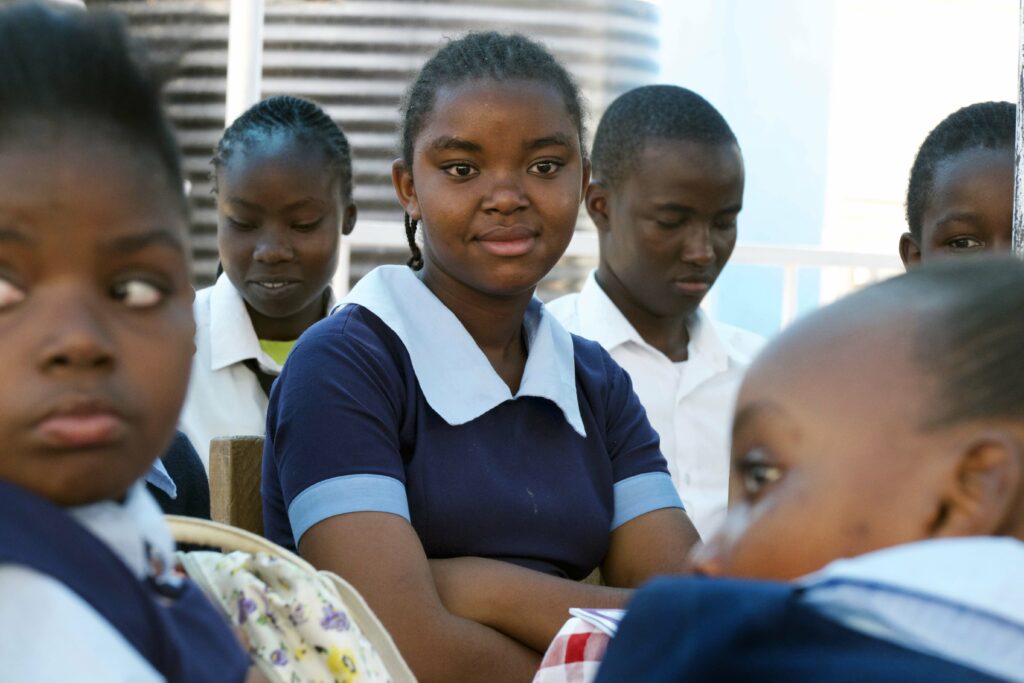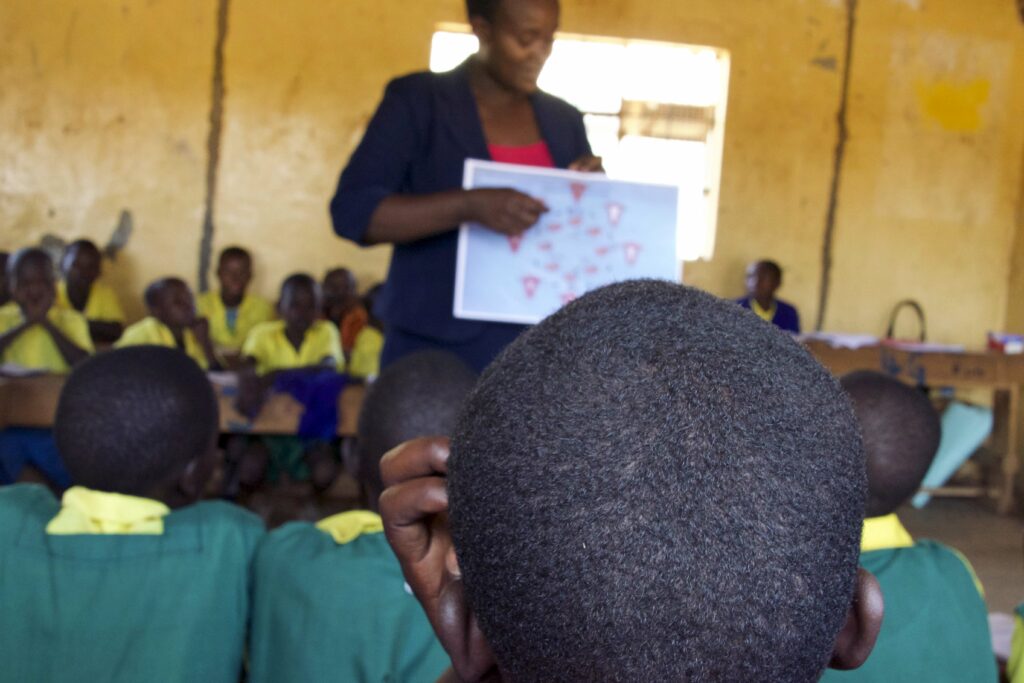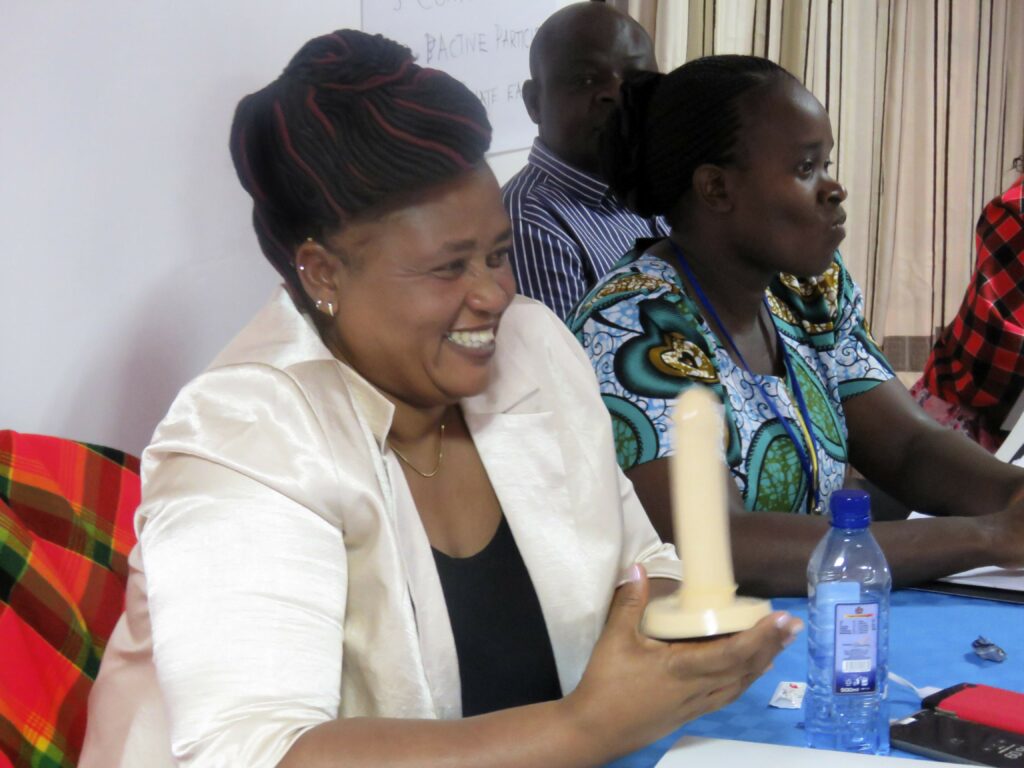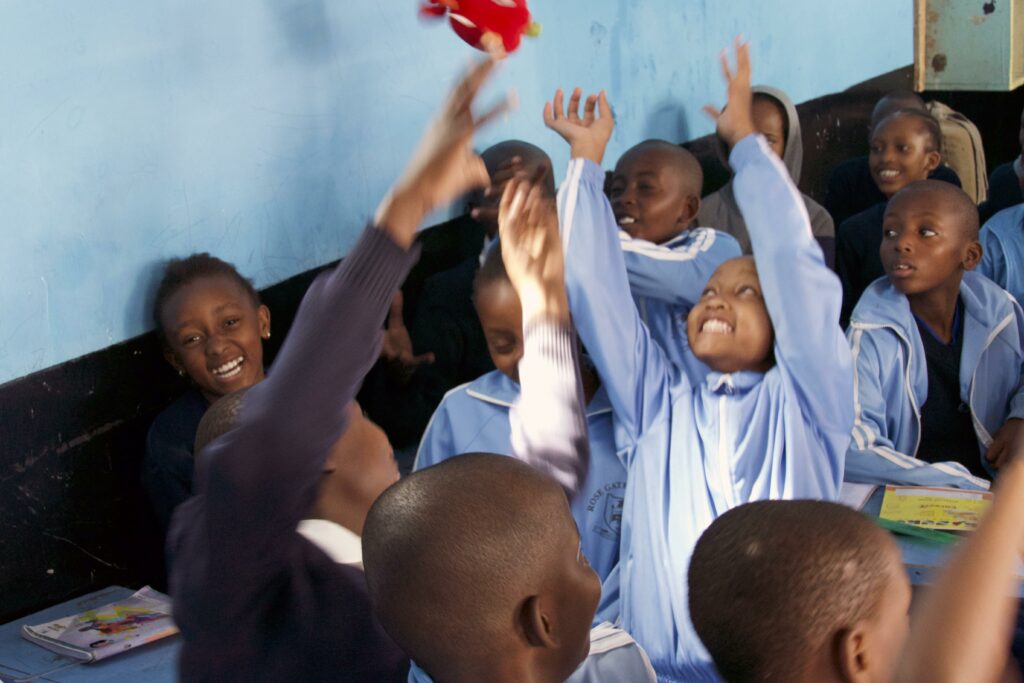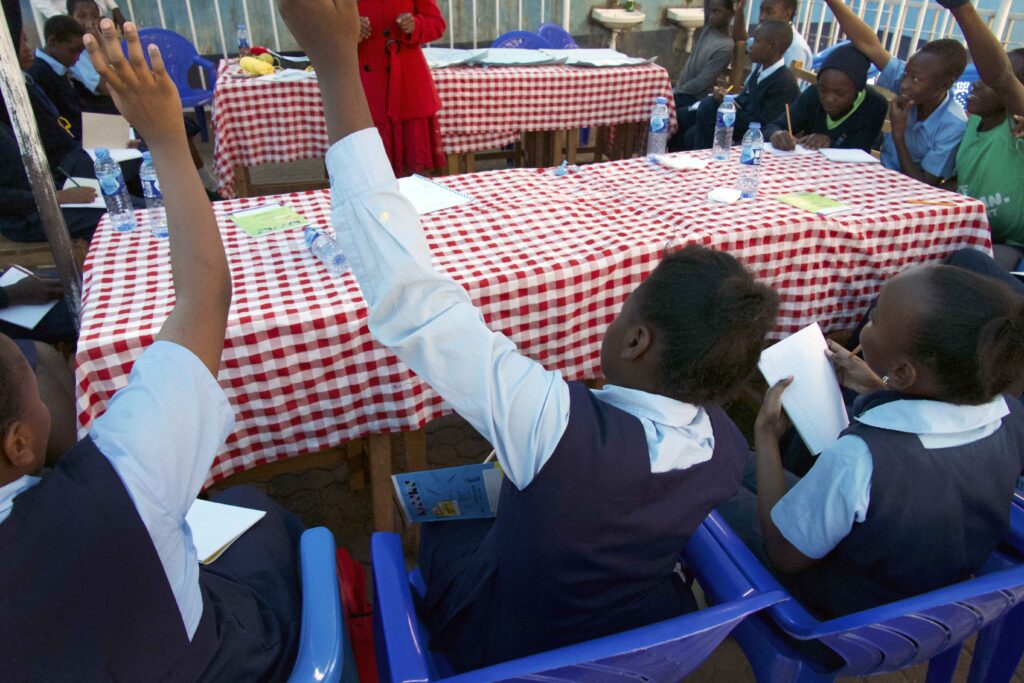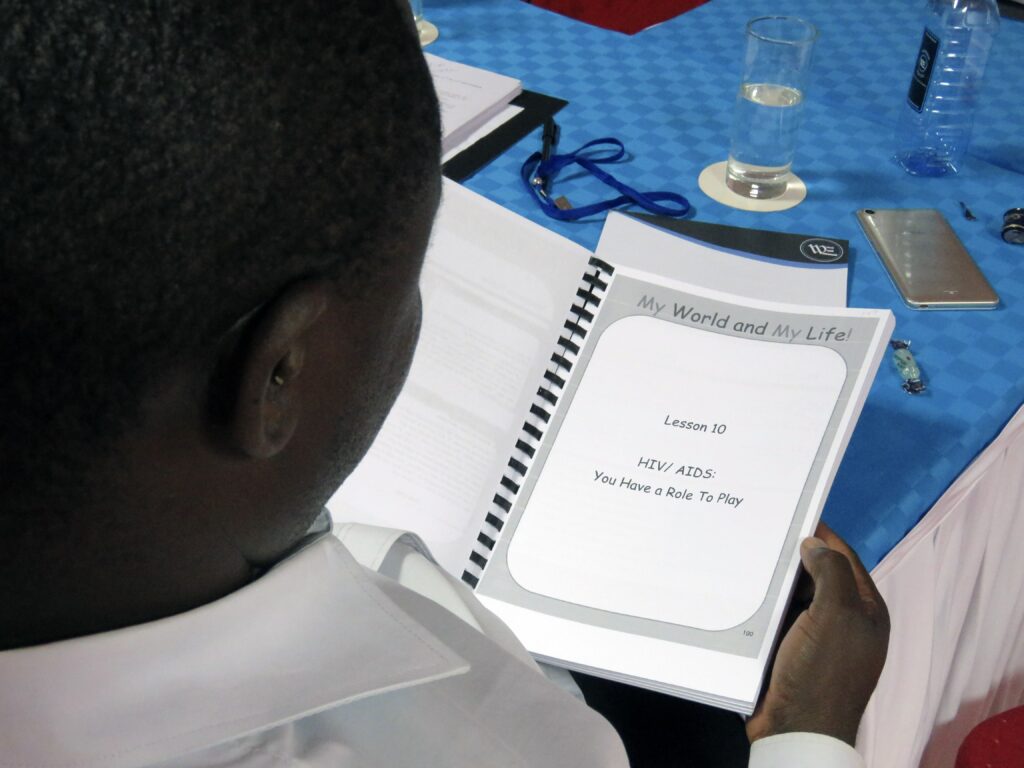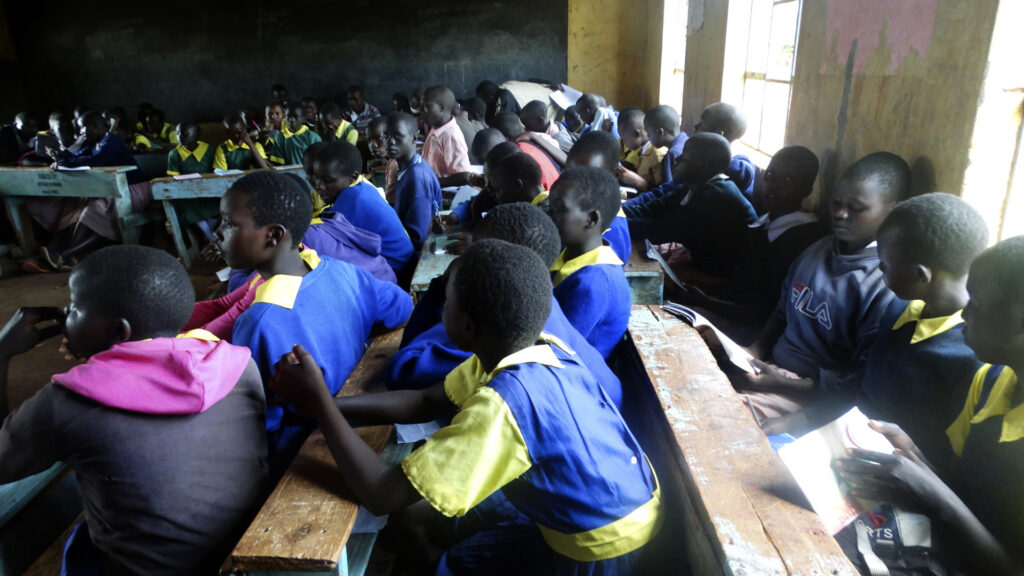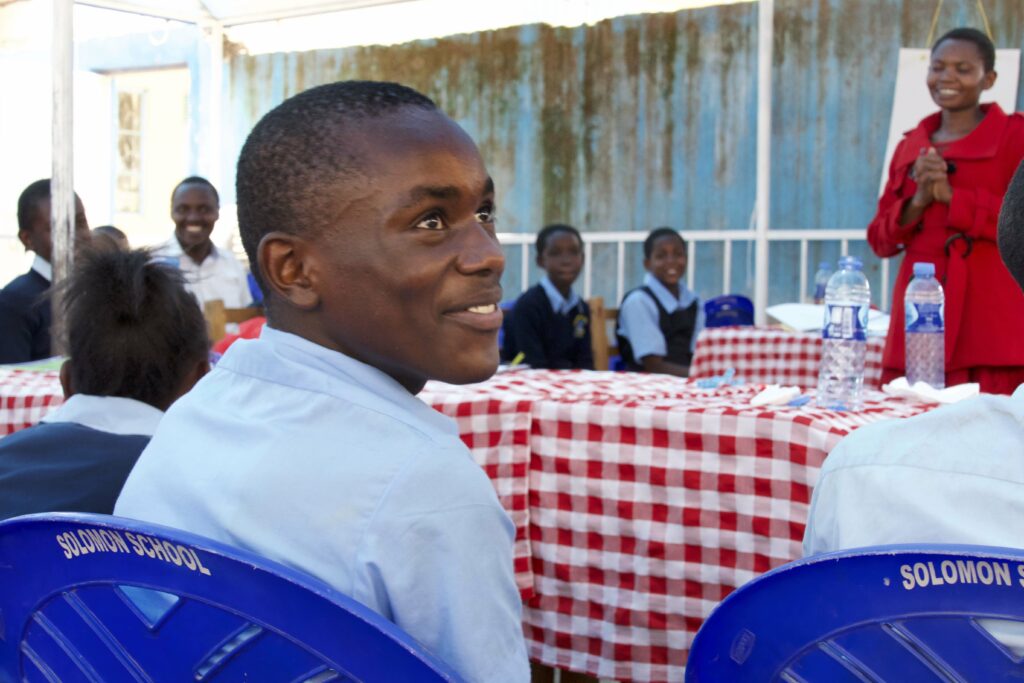We are working to strengthen the sex education in 34 schools in Kenya. In this way, we help reduce child pregnancies, sexually transmitted diseases and therefore also the number of young people dropping out of primary school.
The young people of Kenya have too many unanswered questions to work out alone; just because it is taboo to ask those question.
“What cause HIV AIDS when one do sex?” “Why do men and women do sex?” “Is it real that love without sex is like tea without sugar?” “What is puberty?” “Why do boys have wet dreams at night?” “What should I do when I get raped?” “My father wants to sleep with me – is that normal?” “Can somebody work if he/she is a (HIV) positive?” “Why is life sometimes hard?” “What can I do to avoid bad company?” “Why do human beings do sex?”
Sexual and reproductive rights are important and taboo subjects for many young people in Kenya. In most schools, gender, pregnancy, and puberty are not taught - and therefor many young people lack knowledge of those subjects. In 100% we over the years have experienced, that many young women become pregnant during their schooling. This usually means that their education stops. Therefore, we want more talk about sexuality, health, and rights in Kenyan classrooms. Together with both girls, boys and schoolteachers, we have started a new project arounda common taboo: physicality and sexuality.
We collaborate with Periamma, Positive Life and Help Mission Development Service to strengthen the teachers and poor young people’s knowledge about gender, reproductive health, and sexual rights.
In the slums around Nairobi, there are many children whose parents work as prostitutes. In the countryside around Baringo County, there are many girls who drop out of school due to pregnancy. Hence, we work with teachers and students at 34 schools in Nairobi and the countryside of Baringo county. We do this through a participatory approach based on Danish participant-oriented methods. The project is supported by Civilsamfund i Udvikling (CISU).
Read the local project coordinator's stories from the project here and listen to Camilla and Camilla from 100% for the Children read aloud some of the questions we are getting from young people that we work with in the project:
Teachers opinions
